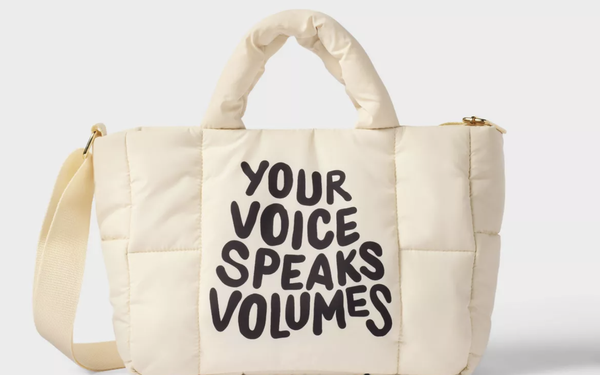 Target's Black
History Month items sparked outraged comments on social media, criticizing what many consumers see as brand hypocrisy.
Target's Black
History Month items sparked outraged comments on social media, criticizing what many consumers see as brand hypocrisy.
A new study reveals that consumer trust in brands is
eroding, with diversity rollbacks becoming a key flashpoint in an already widening gap.
Some 80% of those in Collage Group’s latest wave of data say inclusive marketing is equally or
more important to them today than in 2020, and 39% say they’ve purchased from a brand expressly because that company’s ads represent diverse people in ways that seem authentic.
Since President Donald Trump’s re-election, many companies -- including Target, Walmart, McDonald’s, and Toyota -- have rolled back DEI initiatives. As a result, 30% of consumers (about
86 million people) plan to cut back spending on these brands.
advertisement
advertisement
That meshes with other research, including a recent Harris Poll published in the Guardian, which found that by mid-February
-- even before boycott and Economic Blackout plans solidified on social media -- 24% of consumers said they’d already stopped shopping at their favorite stores.
And while there’s
no conclusive data available yet that these efforts, including the recent Economic Blackout Day, are hurting sales, preliminary indications show these consumer-led boycott groups could hurt financial
performance.
The uproar reflects problems that go much deeper than a single issue. “Many brands have been spiraling down a reactionary cycle for years,” the report says. Brands
start with grand promises, retreat to moderate promises, then degenerate into empty promises. For consumers, that’s led to a parallel downward cycle of disappointment and backlash.
The
result is a gaping trust gap: While 80% of consumers say brand trust is essential when making a purchase, only 40% believe brands and companies are trustworthy.
DEI isn’t the only
measure of trust, or even a large one. A personal positive experience with the product or service is the essential way brands build trust, named by 61% of respondents, followed by friends and family
recommendations (47%), timely and personal customer service outreach (39%), transparent business practices (37%), and fair treatment of staff (32%.)
A stated commitment to diversity was named
by just 25%, with support for “social causes I care about” mentioned by 24%.
Before their DEI pullbacks, Walmart and Target had high trust levels compared to other retailers, with
83% of consumers saying they trusted Walmart and 82% saying they trusted Target, according to Collage.
In the weeks following announcements from both companies saying they would no longer
support efforts promoting internal diversity and inclusion, Walmart has somehow managed to maintain more of that trust, with Collage’s measure of brand momentum among multicultural consumers up
nine percentage points, and increasing by six percentage points among white shoppers.
Consumers believe Walmart is holding up its primary and highly transactional promise: everyday low
prices.
For Target, the reverse is true. Consumers read the DEI retreat as an abandonment of core promises. Momentum among multicultural shoppers fell three percentage points and dropped seven
percentage points among white shoppers.
“Target is stuck in a repeated, reactionary cycle of dramatic reversals,” the report notes, “with the latest policy changes,
misaligned with established brand values, continuing the downward spiral. The brand is now extremely vulnerable to double backlash and accusations of performative allyship.”
Early in
February, Target launched a Black History Month collection, drawing widespread hisses and boos on social media. “Did you think we forgot???” posted one critic. “Babes Babes it
hasn’t even been a month.” Added another: “Anyways, y’all need anything from Costco?”
Collage says the findings underscore messages for all marketers, no matter
where their corporate parent lands on the political spectrum. For those at companies that are standing by DEI policies, a list that includes Costco, Apple, Delta Airlines and E.L.F., it’s vital
to do more than just stay the course. Collage says stepping up core brand value propositions, and increasing transparency efforts to reach out to multicultural growth segments, will all increase
trust.
For those working at brands that have eliminated or watered down efforts, marketers need to “chart a new course.” That likely entails increasing efforts to track consumer
sentiment, developing proactive response playbooks, and building new relationships with diverse creators.